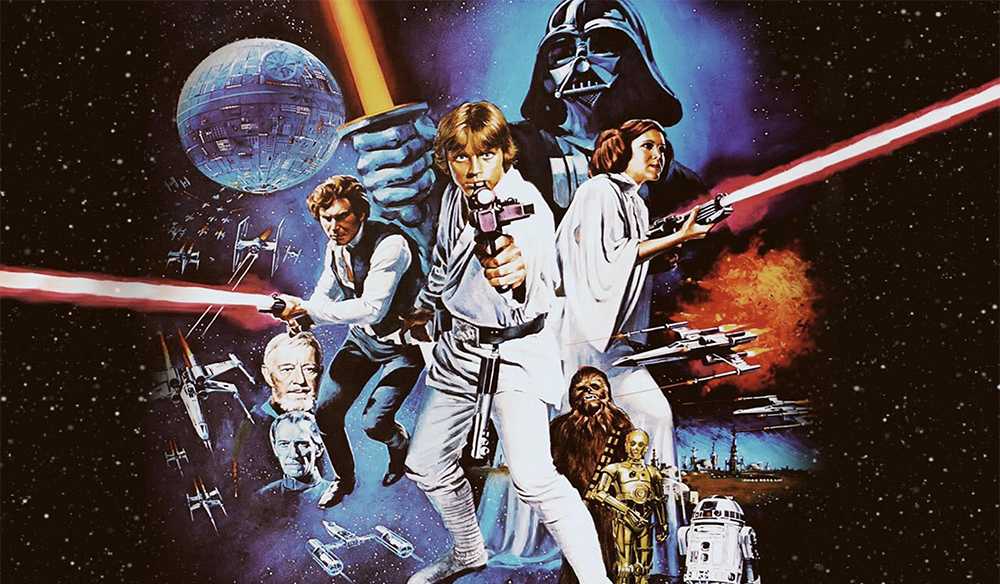A Closer Look at the Different Film Genres in the Movie Industry
"Unlock the Secrets of Hollywood: Explore Exciting Genres in the Movie Industry! ?? Discover, Dive in, and Be Amazed

The Multifaceted Role of Different Film Genres in the Movie Industry
The world of cinema is a diverse and ever-evolving landscape that has captivated audiences for over a century. One of the key elements that contribute to the richness of this art form is the plethora of film genres. From action-packed blockbusters to thought-provoking dramas, and from spine-tingling horror to heartwarming romances, film genres play a crucial role in shaping the movie industry. This article delves into the multifaceted role of different film genres in the movie industry, highlighting their influence on storytelling, audience engagement, and the economic aspects of filmmaking.
Diverse Storytelling Platforms
Film genres serve as distinct storytelling platforms, each with its own set of conventions, themes, and narrative techniques. These platforms provide filmmakers with the creative freedom to explore a wide range of stories and emotions, catering to diverse audience tastes. Let's explore some popular genres and their storytelling characteristics:
.?Drama: Drama films focus on character development and interpersonal relationships. They often tackle complex themes and emotions, making them a platform for thought-provoking storytelling. Examples like "The Shawshank Redemption" and "Forrest Gump" demonstrate the genre's ability to engage audiences on an emotional level.
Science Fiction: Sci-fi films transport audiences to imaginative worlds where technology and science play pivotal roles. They explore futuristic concepts, often challenging societal norms and posing existential questions. Movies like "Blade Runner" and "The Matrix" exemplify the genre's capacity for exploring the unknown.
Comedy: Comedy films aim to entertain and make people laugh. They rely on humor, satire, and wit to engage audiences. Classics like "Some Like It Hot" and "Annie Hall" demonstrate how comedy serves as an excellent escape from reality.
Horror: Horror films thrive on fear and suspense. They often delve into the supernatural or psychological, keeping viewers on the edge of their seats. Iconic examples like "The Shining" and "The Exorcist" showcase the genre's ability to evoke primal emotions.
Action: Action films are known for their adrenaline-pumping sequences and heroic protagonists. They offer thrilling escapism and spectacular stunts, as seen in franchises like "James Bond" and "Fast & Furious."
Romance: Romance films celebrate love and human connections. They explore the complexities of relationships, often delivering heartwarming and emotionally charged stories. Movies like "The Notebook" and "Eternal Sunshine of the Spotless Mind" embody the genre's essence.
Audience Engagement and Identification
Film genres play a pivotal role in engaging audiences by catering to their specific preferences. When viewers choose a film within a genre they enjoy, they are more likely to become emotionally invested in the story and characters. This engagement fosters a sense of identification and connection, which is crucial for the movie industry's success.
Cultural Relevance: Different genres often align with cultural contexts and societal trends. For instance, during times of political or social upheaval, dystopian and political thrillers gain popularity as they reflect and resonate with contemporary concerns. This alignment enhances the relevance of certain genres in specific periods.
Target Demographics: Genres also cater to specific demographics. Family-friendly animations like "Toy Story" are designed to engage children and parents alike, while edgier genres like horror or crime thrillers may target more mature audiences. This strategic targeting helps studios maximize their reach and box office returns.
Genre Hybridization: Filmmakers frequently blend genres to appeal to a wider audience. For example, the superhero genre often incorporates elements of action, sci-fi, and fantasy, making it appealing to fans of multiple genres. This hybridization allows for more nuanced storytelling and greater audience inclusivity.
Economic Aspects of Filmmaking
The movie industry is not only an artistic endeavor but also a massive economic enterprise. Different film genres play a significant role in shaping the industry's financial landscape.
Box Office Revenue: Film genres have varying levels of box office potential. Blockbuster genres like action and superhero films tend to generate substantial revenue due to their broad appeal and international marketability. These films often serve as financial pillars for studios.
Production Costs: The choice of genre also influences production costs. High-octane action and special effects-heavy sci-fi films typically demand larger budgets, whereas dramas and comedies can be made on a more modest scale. Genre selection thus impacts a film's financial risk and potential for profitability.
Franchise Building: Certain genres, such as superhero and fantasy, lend themselves well to franchise-building. Successful franchises like the Marvel Cinematic Universe (MCU) and "The Lord of the Rings" have become lucrative long-term investments for studios. These franchises capitalize on fan loyalty and merchandise sales.
Festival and Awards Circuit: While blockbusters dominate the box office, genres like drama and independent cinema often excel in the festival circuit and awards season. Winning prestigious awards can significantly boost a film's visibility and profitability, making these genres a vital part of the industry's cultural and financial ecosystem.
Cultural Impact and Social Reflection
Film genres not only entertain but also reflect and influence society. They serve as mirrors, reflecting the values, fears, and aspirations of their time, while also shaping cultural discourse.
Social Commentary: Many genres, such as science fiction and political thrillers, use allegory and metaphor to comment on contemporary social and political issues. For instance, the dystopian worlds in films like "1984" and "Children of Men" raise questions about surveillance, totalitarianism, and individual freedom.
Changing Norms: Over the years, film genres have played a significant role in challenging and redefining societal norms. The portrayal of LGBTQ+ characters in romance and drama genres, for example, has contributed to greater acceptance and representation in mainstream media.
Cultural Moments: Certain genres become cultural phenomena, leaving a lasting impact on society. The blaxploitation genre of the 1970s, with films like "Shaft" and "Super Fly," not only entertained but also empowered marginalized communities, giving rise to a cultural movement.
Film genres are the building blocks of cinematic storytelling, offering a diverse range of narratives and emotions to captivate audiences. They serve as a means of engagement, economic opportunity, and cultural reflection within the movie industry. As audiences continue to evolve, so too will the importance and relevance of different film genres, ensuring that the world of cinema remains a dynamic and vibrant art form that speaks to the human experience. Whether it's the heart-pounding action of a blockbuster or the introspective drama of an indie film, each genre contributes its unique essence to the tapestry of filmmaking, making it a medium that continues to captivate and inspire.
What's Your Reaction?
















